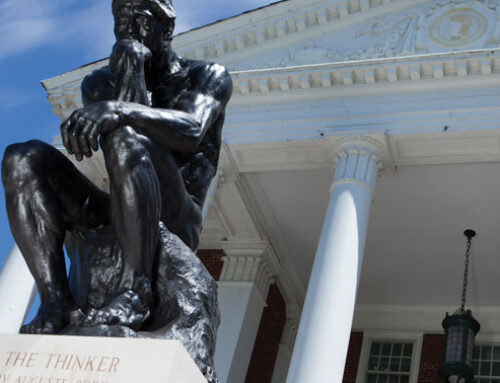T. Dylon Jones
Music is meant to be played before a live audience in order to be fully appreciated. But in the modern age, most people rely on their computers, the radio, or iPods to hear their favorite band. Technology allows the general public to hear music almost anywhere. This has affected music in multiple ways:
- Globalization; sharing music has never been easier. We can access more than we can understand at any time, from all over the world. That’s amazing. We take it for granted.
- Industrialization; musicians have to make money. With the advent of digital media, they have wider audiences, so it’s easier to sell music. Sort of. It’s also easier for the “music” industry to sell products, rather than music. Recent wrecking ball travesties prove that.
- Stereotyping; Technology exposes us to other cultures, eras and philosophies. We have all heard, or have had the opportunity to hear more music than any generation before us, yet we react to new music like your sheltered roommate who’s never seen beer before reacts to “Caligula.” Genres are supposed to describe types of music. Instead, they pigeonhole musicians into neat little boxes. Genres have become a marketing technique; you hear one rap song, and expect all rap songs to be similar. This is good for record companies, because they can sell you music based on a meaningless word you read on your favorite album. It’s bad for music, because it reduces it to a stereotypical caricature of one style or another. We judge music before we even hear it.
Enter: live music. It provides relief in the following ways:
- Spontaneity; yes, live music is marketed too, but it’s not riddled with avarice and advertisement. Live music is a one-time event, even if there are repeat performances. No one has ever played the same piece of music the same way. Ever. Forget it. And celebrate it! Rejoice that you can participate in a unique musical experience that no one will ever have again. It sounds sad, but there’s something to that adage about a bright light burning fast. The fleeting, spontaneous musical moments, even mistakes, make live music an exciting conversation amidst tired scripts.
- Attention; recordings coddle us with anonymity. With live music, you are you and everyone can see that. It’s easier to engage in what you’re listening to, instead of plugging in your ear buds as you settle down to posting mediocre meals on Instagram. Music should be active, and you should be active with it. Now, live music is also subject to distractions, but it’s also much more engaging. If you give your full attention to live musicians, you’ll notice something:
- Atmosphere; or something like that. Live music has a visual element, a tactile element, and that tingling sensation of involvement that recorded music cannot provide. It’s like reading a book instead of an e-book, or whatever those abominations are called. Seeing musicians right in front of you reminds you that music comes from real people.
So take advantage of technology as much as you can, but be careful. Music is a performance art. Go to concerts or music venues, and take in live music from unknown musicians. It’s easy and inexpensive. Iroquois Amphitheater hosts numerous free events. Check out Wick’s, the Nachbar, Molly Malone’s, anywhere with live music and a good atmosphere. Louisville is teeming with talent and good times.
Photo courtsey of Google Images






